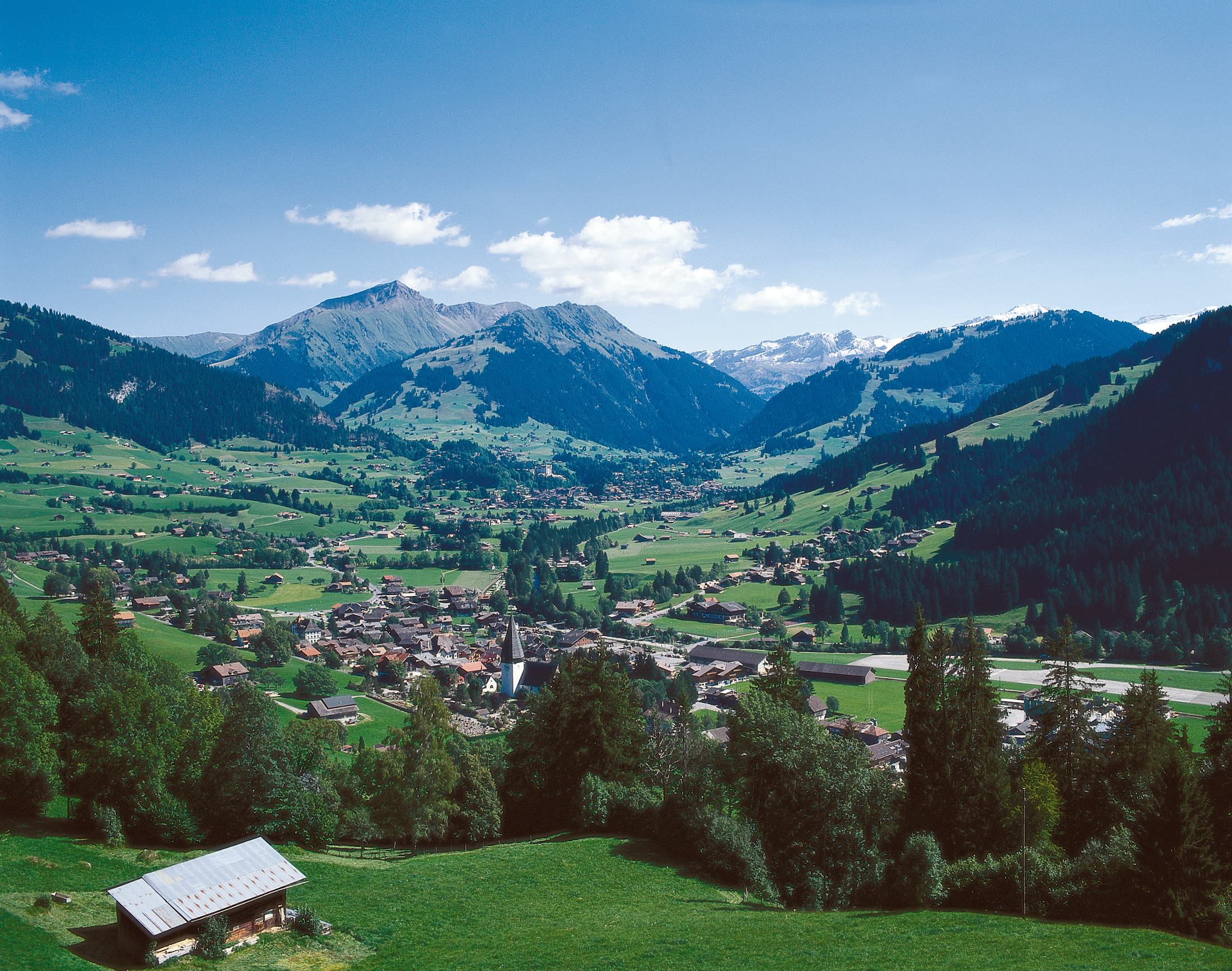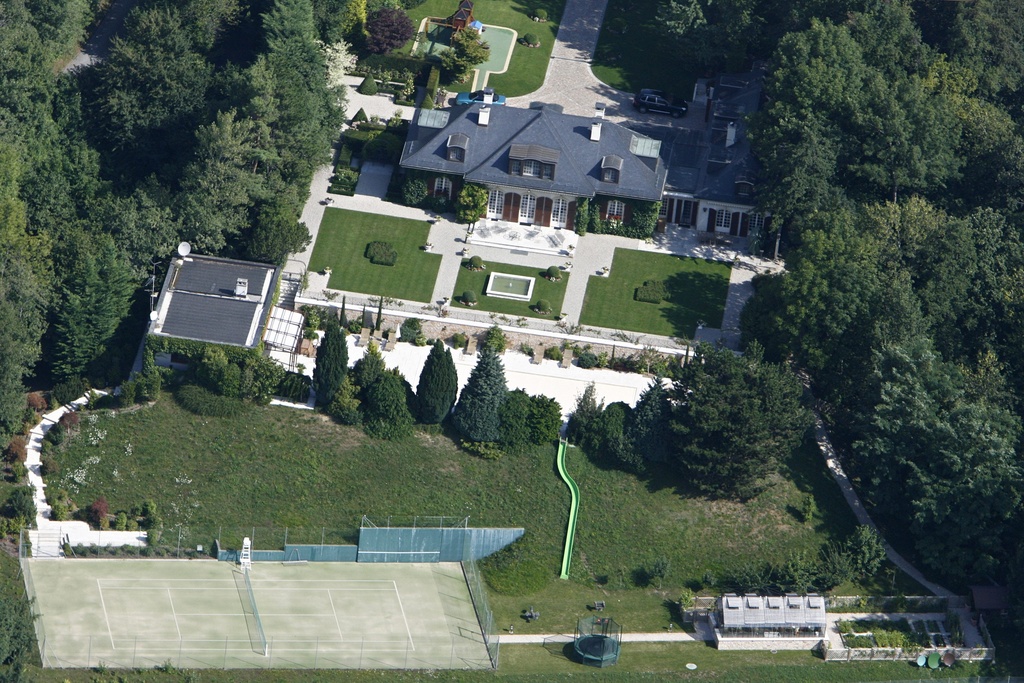Wealthy foreigners face higher tax bills

Basel Country has become the latest canton to abolish a preferential tax system for rich foreign residents. A similar proposal in canton Bern failed to win over a majority on Sunday, but the criteria for beneficiaries were tightened.
Just over 61 per cent of voters in Basel Country approved an initiative by the Social Democrats, according to official results.
In canton Bern, a parallel proposal was rejected by a two to one majority. However, 53 per cent of voters agreed to introduce a minimum tax level of SFr400,000 ($432,000) to be eligible for the privilege.
Basel Country currently has 16 beneficiaries, while there are about 230 such taxpayers in canton Bern, mainly residents of the mountain village of Saanen-Gstaad, including Formula One tycoon Bernie Ecclestone and French rock star Johnny Hallyday.
The ballot box decisions come just days after Basel City’s cantonal parliament decided to scrap the preferential tax system.
Under the scheme wealthy foreigners are taxed on their estimated cost of living instead of the stated combined annual income and wealth.
Over the past three years, five of the 26 Swiss cantons have scrapped the scheme, while another five have voted to keep the special tax but decided to raise the bar for beneficiaries.
The calculation rate was increased to up to ten times the annual rental value of the residence, instead of the current five, and the minimum level of income for beneficiaries was set at SFr600,000 a year in some cantons.
Moves to abolish the preferential tax system are still underway in at least three additional cantons, including Geneva.
Old and rich
Opponents of lump sum taxation, mainly from leftwing parties, argue the preferential treatment violates the constitution, while supporters are concerned that Switzerland could lose its competitive edge on fiscal matters. They argue stricter regulation would lead to an exodus of wealthy taxpayers.
The tailor-made system was first introduced in western Switzerland back in 1862 and became popular in the first half of the 20th century across the country, allowing the authorities to tax mainly non-Swiss, retirement age residents who generate their income abroad.
However, criticism against foreigners paying proportionally less tax than ordinary citizens has been increasing since the global financial crisis.
In a 2009 ballot box upset, voters in canton Zurich decided to do away with the preferential fiscal status. It set off a series of moves in other cantons which traditionally have wide-ranging autonomy.
Under Switzerland’s federalist system, taxes are due to the cantonal, communal as well as the federal authorities but at different rates.
Parliament
At a nationwide level, parliament decided to set the federal lump sum tax on the basis of seven times the rental value of a property, instead of five. Only people with an income of at least SFr400,000 annually qualify for such a tax privilege.
During debates in both chambers over the past two weeks, opponents of the reform – mainly from the People’s Party and the Radicals – tried to stall implementation of the amendment and sought exemptions for beneficiaries over the age of 65.
Finance Minister Eveline Widmer-Schlumpf defended lump sum taxation as a realistic compromise based on clear criteria. She also acknowledged that the system is increasingly contested.
“The reform is in line with the fiscal policy of the cantons and aims to boost acceptance of lump sum taxation among critics of the system.”
She dismissed claims that abolition of the scheme will automatically lead to a slump in revenue.
“The example of Zurich shows that benefits and disadvantages even out at the end of the day,” she told the House of Representatives during the autumn session.
Revenue from lump sum taxes at a federal level could even increase by 50 per cent to SFr230 million with the reform, she estimated.
Initiative
On several occasions both chambers have dismissed attempts to ban lump sum taxation.
However, the Alternative Left party has been pushing for a nationwide ballot on the issue. It hopes to submit the necessary signatures for its initiative next month.
A total of about 5,450 people, most of retirement age, currently benefit from the special status, earning Swiss tax authorities total revenue of about SFr668 million in 2010, according to official data.
The tailor-made system is easy to handle – the authorities do not have to make a special effort to evaluate foreign taxpayers – as a recent editorial in the Neue Zürcher Zeitung newspaper pointed out.
The respected daily, which is traditionally close to the business community and the centre-right Radical Party, also stressed that the tax indirectly helps finance more than 20,000 jobs, particularly in remote regions and mountain resorts.
Beneficiaries must live at least six months and one day in Switzerland and have their principal residence in the country.
They must be making Switzerland their tax home for the first time, or have lived outside the country for at least ten years.
They must not be employed within Switzerland.
Most of the 5,445 beneficiaries (official data from 2010) live on Lake Geneva or in mountain resorts, mainly in cantons Vaud, Valais, Geneva, Ticino, Graubünden and Bern.
Estimates put the figure at 5,600 beneficiaries.
The Organisation for Economic Co-operation and Development (OECD) last January called on Switzerland to abolish the lump sum tax system.

In compliance with the JTI standards
More: SWI swissinfo.ch certified by the Journalism Trust Initiative




You can find an overview of ongoing debates with our journalists here . Please join us!
If you want to start a conversation about a topic raised in this article or want to report factual errors, email us at english@swissinfo.ch.